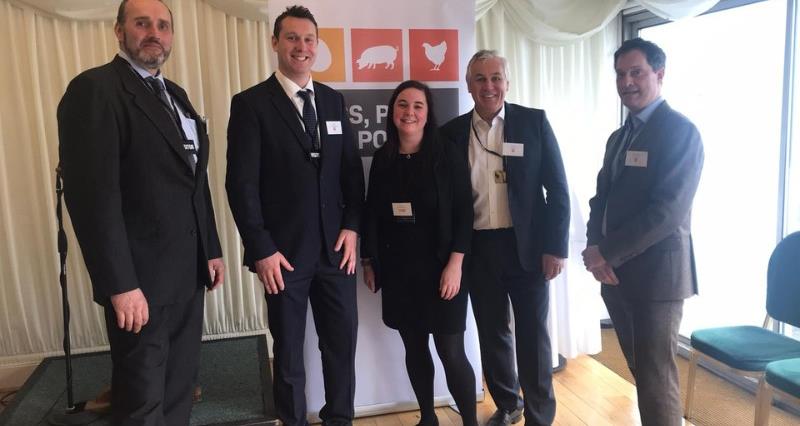At the beginning of March, alongside then-national Poultry Board chair Thomas Wornham, current vice-chair Phill Crawley and then-co-opted board member Paul Kelly, I was lucky enough to be invited to the Houses of Parliament in Westminster to represent both the poultry industry and the NFU’s PIP (Poultry Industry Programme) at an APPG (All-Party Parliamentary Group) for eggs, pigs and poultry.
Food heroes
The breakfast meeting, held in the Thames Pavilion and hosted by chair of the APPG, Jim Shannon MP, allowed members of both Houses the chance to meet (according to the invite) ‘Our food heroes who work to produce the food we all enjoy.’
Despite feeling the pressure of being given the accolade of ‘food hero’, this nevertheless was an ideal opportunity for me to draw on the skills I’d learnt throughout the PIP.
Four key topics
Our agenda for the MPs’ consideration focused on four key topics:
Labour
We set out the labour shortages experienced throughout our supply chain, with emphasis placed on the need to address access to labour for permanent roles and to find longer-term solutions to help fill vacancies to keep the sector operational.
In addition, we wanted to highlight the uncertainty being felt by the seasonal poultry sector caused by the end of freedom of movement and the need to give certainty to businesses by providing access to a seasonal workers scheme for poultry.
Transport
Defra’s proposals regarding welfare in transport will have the effect of limiting journey times to four hours for broilers and prohibiting all poultry journeys of longer than 65km (40 miles) when external temperatures are below 5°C or above 25°C (unless vehicles that can actively regulate the internal temperature are used).
Our ask was that Defra would work with the industry to ensure the proposals are practical, scalable and based on up-to-date science and evidence that demonstrates improvement to bird welfare.
Avian influenza
The unprecedented levels of AI we have seen this winter have led to a need to review marketing legislation, which currently provides a 16-week grace period for the marketing of free-range eggs when housing measures are imposed.
We also wanted to raise the necessity of a fit-for-purpose compensation protocol and payment scheme for birds that are confirmed with AI and subsequently culled by the government.
We also agreed to highlight the need to provide support for longer-term measures to deal with AI as an annual occurrence, including more research into vaccination.
Farming rules for water
We hoped to promote the need to help find and implement practical solutions to manure management, which allow utilisation of a nutritional product.
Welcoming and well received
Our preparation paid off. The audience was welcoming and our messages were well received. Each MP I had the pleasure of speaking to was interested in what we had to say and appeared genuinely concerned about the issues we raised.
Farm visits and engagement with your MP
Many of the MPs I engaged with showed an interest in visiting a poultry farm within their constituency, which is also encouraging as this presents a crucial opportunity to raise our concerns with those representing us within government.
It seems that the tragic events in Ukraine have raised potential food supply issues in the UK to the forefront of the current political agenda and I would encourage everyone to contact their local MP to talk about issues faced by the farming industry and how we can help the UK to avoid descending into a food crisis.
